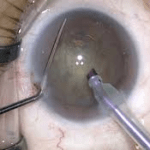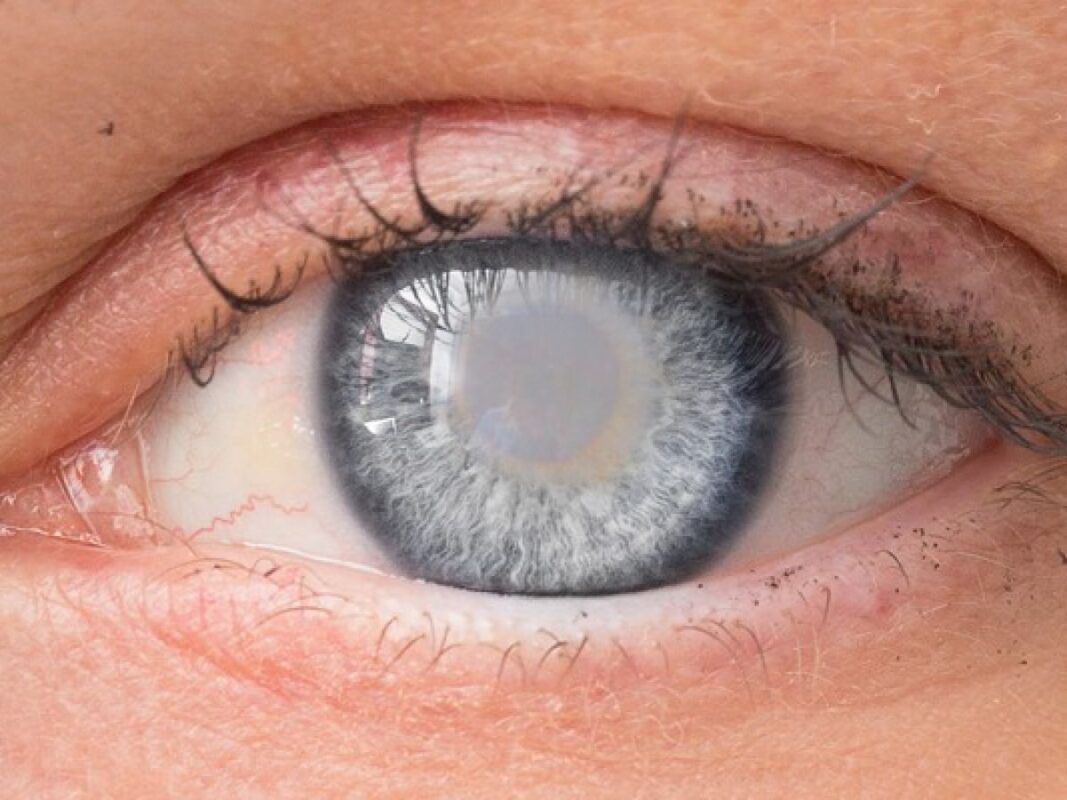What is the Recovery Time for Cataract Surgery?
Cataract surgery is one of the most frequently performed surgeries worldwide, providing significant relief and vision restoration for millions of people each year. But like any surgery, it’s important to understand the recovery time and what to expect.
In this article, we’ll discuss how long it takes to recover from cataract surgery, the factors influencing recovery, and the steps you can take to ensure a smooth healing process.
Introduction to Cataract Surgery
What is Cataract Surgery?
Cataract surgery is a procedure that involves removing the cloudy lens in your eye and replacing it with an artificial intraocular lens (IOL). Cataracts are a natural part of aging and occur when the eye’s lens becomes clouded, making it difficult to see clearly. The surgery is usually done on an outpatient basis and has a very high success rate.
Why is Cataract Surgery Needed?
When cataracts cause significant vision impairment that interferes with daily activities such as reading, driving, or recognizing faces, cataract surgery is necessary. It’s often the best way to restore clear vision and improve the quality of life for individuals affected by cataracts.

Before Cataract Surgery
1. Pre-Surgery Evaluation
Before your cataract surgery, your ophthalmologist will perform a comprehensive eye exam. This may include:
- Measuring the size and shape of your eye: This helps in selecting the right size and type of intraocular lens (IOL).
- Assessing your overall eye health: Your doctor will ensure there are no other conditions that could affect the surgery or recovery.
- Discussing your lifestyle needs: If you need specific types of lenses, such as multifocal or toric lenses, the doctor will discuss these options based on your preferences.
2. Medication Instructions
Your doctor will provide instructions regarding medications. You may need to stop taking certain medications that could increase the risk of bleeding. You will likely be given eye drops before surgery to dilate your pupils and help prevent infection.
3. Fasting and Transportation
Since cataract surgery is performed under local anesthesia, you should be able to eat and drink as usual until a few hours before the procedure. Arrange for someone to drive you home after the surgery, as your vision may be blurry or temporarily affected.
4. Anesthesia
The surgery is typically performed under local anesthesia, meaning you will remain awake but your eye will be numbed. Some people also receive a mild sedative to help them relax.
During Cataract Surgery
5. Procedure Overview
The surgeon will make a small incision in the cornea to access the eye’s lens. Through this incision, the cataract is broken up using ultrasound (phacoemulsification) and removed. A new intraocular lens (IOL) is then inserted in place of the old lens.
The entire surgery usually takes about 15 to 30 minutes. Most patients report little to no pain or discomfort during the procedure.
After Cataract Surgery
1. Immediate Post-Surgery Care
After the surgery, you will likely be monitored for a short period before being allowed to go home the same day. Expect some mild discomfort, blurry vision, or a gritty feeling in the eye, which should improve over time.
2. Post-Surgery Instructions
Your doctor will provide specific instructions for aftercare, including:
- Applying prescribed eye drops helps prevent infection and manage inflammation.
- Avoiding strenuous activities such as heavy lifting, bending, or vigorous exercise for a few weeks.
- Wearing an eye shield while sleeping to prevent accidental rubbing.
3. Follow-Up Appointments
You’ll be asked to return to your doctor’s office for follow-up appointments within the first few days and again after a few weeks to monitor your recovery and vision improvements. Your doctor may adjust your glasses prescription during these visits.
4. Vision Improvement
Many people report clearer vision within a few days after surgery. However, it can take up to a month for vision to fully stabilize. Complete recovery might take several months, depending on the individual.
Cost of Cataract Surgery in Bangalore
The cost of cataract surgery in Bangalore varies depending on several factors such as the type of surgery, the choice of intraocular lens (IOL), and the clinic or hospital you choose. On average, the cost ranges between ₹20,000 to ₹50,000 per eye for traditional cataract surgery. For laser-assisted cataract surgery or surgeries involving premium IOLs (like multifocal or toric lenses), the price can go up to ₹70,000 to ₹1,50,000 per eye.
Cost Breakdown:
- Traditional Cataract Surgery (Phacoemulsification): ₹20,000 – ₹40,000 per eye
- Laser Cataract Surgery: ₹40,000 – ₹70,000 per eye
- Premium Intraocular Lenses (Multifocal, Toric, etc.): ₹50,000 – ₹1,50,000 per eye
- Hospital Stay and Additional Charges: The charges for hospitalization (if needed) may add to the overall cost, but cataract surgery is generally done on an outpatient basis.
It’s always a good idea to consult with your ophthalmologist to understand the exact cost based on your individual requirements. Additionally, some hospitals may offer financing options or package deals for cataract surgery.
Understanding the Recovery Process
Overview of Recovery After Cataract Surgery
Most people are surprised to learn that recovery from cataract surgery is relatively quick. While complete recovery may take several weeks to months, many patients notice significant improvements in their vision within a few days after the surgery. That said, the recovery time varies depending on a variety of factors.
Importance of Proper Recovery
Following the recommended recovery process is essential to prevent complications and ensure the best possible results from the surgery. Proper post-operative care can also reduce the risk of infection and help your body heal faster.
Timeline for Recovery
Immediate Post-Surgery Recovery (First 24 Hours)
Right after the surgery, you’ll likely experience some discomfort, including blurry vision, mild irritation, or a feeling of something being in your eye. These symptoms are usually temporary. It’s also common to have a protective eye shield or bandage in place for the first 24 hours.
During this period, it’s crucial to rest and avoid any strenuous activities. You should arrange for someone to drive you home after the surgery, as your vision may be blurry initially.
The First Week After Cataract Surgery
In the first week, many patients experience gradual improvements in their vision. However, it’s normal to still have some mild discomfort or sensitivity to light. You should continue to avoid activities like heavy lifting, bending, and swimming during this period. Your doctor may prescribe eye drops to prevent infection and reduce inflammation.
Recovery at 1 Month
By the end of the first month, most people can return to their regular activities, including driving and reading. However, some people might still experience slight blurry vision or mild irritation. It’s important to keep follow-up appointments with your doctor to monitor your healing progress.
Full Recovery (3 to 6 Months)
While your vision may improve rapidly, complete recovery can take anywhere from 3 to 6 months. During this time, your eye will adjust to the new intraocular lens. For some people, a mild fluctuation in vision may occur, but this should settle as your eye fully heals.
Factors Affecting Recovery Time
Age and Health Conditions
Younger patients generally recover more quickly, while older adults may experience a slower healing process. Additionally, any underlying health conditions like diabetes or high blood pressure can potentially extend recovery time.
Type of Cataract Surgery (Traditional vs. Laser)
Laser-assisted cataract surgery may offer a slightly faster recovery compared to traditional methods due to the precision and reduced trauma to the eye. However, the difference in recovery time is usually minimal, with both methods requiring careful post-operative care.
Complications During Surgery
Although rare, complications like infection or damage to the eye can prolong recovery. If complications occur, they must be addressed immediately to prevent further issues.
How to Speed Up Recovery
Follow Post-Operative Instructions
Adhering to your surgeon’s aftercare instructions is the most important thing you can do to speed up recovery. This includes using prescribed eye drops, attending follow-up visits, and protecting your eyes from strain.
Avoid Straining Your Eyes
In the early stages of recovery, avoid activities that may strain your eyes, such as reading for long periods, using electronic devices, or watching TV for extended times.
Eye Protection and Care
Wear the protective shield or sunglasses as instructed, especially when sleeping, to avoid accidental rubbing or injury to your eye.
Common Post-Surgery Symptoms and Concerns
Mild Discomfort and Blurry Vision
It’s common to experience some blurriness or discomfort after surgery. This should gradually improve over time, but if the discomfort persists, consult your doctor.
Sensitivity to Light
Sensitivity to light, especially bright lights or glare, can occur in the early stages of recovery. Wearing sunglasses outdoors can help minimize discomfort.
Infection Risk
While rare, infections are possible after any surgery. Watch for signs such as increased redness, pain, or discharge, and contact your doctor immediately if any of these symptoms arise.
When to Seek Medical Attention
Warning Signs of Complications
Seek medical attention if you notice severe pain, worsening vision, or signs of infection such as redness, swelling, or discharge.
How to Handle Unusual Symptoms
If you experience any unusual or unexpected symptoms during recovery, it’s important to call your doctor immediately for guidance.
Tips for a Smooth Recovery
Rest and Relaxation
Taking time to rest and avoid physical strain can significantly aid in faster recovery. Proper rest helps the body heal and minimizes stress on the eyes.
Dietary Tips for Eye Health
Eating foods rich in antioxidants and vitamins, particularly Vitamin C and E, can support eye health and recovery.
Staying Active Without Straining
While it’s essential to rest, gentle activities like walking are fine and can help improve overall circulation and recovery.
What to Expect in the Long-Term
Final Vision Improvement
It may take up to six months for your vision to stabilize completely, though most people notice significant improvement much sooner.
Possible Adjustments to Eyewear
In some cases, patients may need to update their glasses prescription after the surgery. For others, cataract surgery might eliminate the need for glasses altogether.
Conclusion
In conclusion, cataract surgery has a relatively short recovery time, with most patients experiencing significant improvements in vision within the first few weeks. However, full recovery may take several months. Following your doctor’s instructions, protecting your eyes, and being mindful of your activity level will ensure the best possible outcome.
Author Details:
Dr. Sushruth Appajigowda holds a prominent position as a Cornea, Cataract, Glaucoma, and LASIK Surgeon in Bangalore. He serves as the chief Cataract and Refractive surgeon at Vijaya Nethralaya Eye Hospital, Nagarbhavi Bangalore. Renowned as one of the finest LASIK surgeons nationwide, he brings with him over 12+ years of experience across multiple LASIK platforms, including ZEISS, ALCON, SCHWIND, AMO, and Bausch and Lomb. Having successfully conducted over 5000 LASIK procedures, Dr. Sushruth holds the title of a Certified Refractive Surgeon and a Fellow of the All India Collegium Of Ophthalmology. Furthermore, he stands as a distinguished speaker at various National and International Forums, using his expertise to guide you in selecting the most suitable procedure based on your health requirements.

http://vijayanethralaya.com/link-in-bio/
FAQs
1. How soon can I resume normal activities after cataract surgery?
Most people can return to normal activities within a few days, but it’s essential to avoid strenuous exercise and heavy lifting for a few weeks.
2. Will I need glasses after cataract surgery?
Some patients can go without glasses after cataract surgery, but others may still need them for reading or distance vision.
3. What is the risk of complications after cataract surgery?
While complications are uncommon, they can include issues such as infection, inflammation, or retinal detachment. Regular follow-ups with your doctor can help prevent these issues.
4. Can I drive right after cataract surgery?
It’s usually safe to drive within a few days after surgery, once your vision improves and your doctor clears you.
5. How do I know if something went wrong during recovery?
If you experience severe pain, sudden vision loss, or signs of infection such as redness and discharge, contact your doctor immediately.












